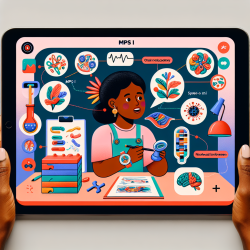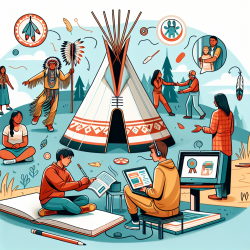Introduction
Racism is a pervasive issue that continues to affect the health and wellbeing of Indigenous peoples in Canada. The Cedar Project, a community-governed cohort study, highlights the significant impact of racism on young Indigenous people who use drugs in British Columbia. This blog explores how practitioners can leverage these findings to improve their practice and encourage further research.
Understanding the Impact of Racism
The Cedar Project's research underscores the prevalence of racism experienced by young Indigenous people. Among the 321 participants, a staggering 79% reported experiencing racism in at least one setting, with 32% experiencing high interpersonal racism from police, governmental agencies, and in public spaces. These findings highlight the urgent need for systemic change to address the root causes of racism and its impact on health outcomes.
Key Findings and Implications for Practice
The study identifies several factors associated with high interpersonal racism, including having a child apprehended, experiencing post-traumatic stress, and trying to quit substances. These associations suggest that practitioners must be aware of the compounded effects of racism and trauma on their clients. By acknowledging these factors, practitioners can tailor their approaches to better support Indigenous clients.
Strategies for Practitioners
- Adopt an Anti-Racist Framework: Practitioners should integrate anti-racist principles into their practice, recognizing and addressing the systemic barriers that Indigenous clients face.
- Enhance Cultural Competency: Understanding the cultural context and history of Indigenous peoples is crucial. Practitioners should engage in continuous learning to provide culturally safe and respectful services.
- Advocate for Structural Change: Practitioners can play a role in advocating for policy changes that address systemic racism and promote equity in healthcare and social services.
Encouraging Further Research
The Cedar Project's findings highlight the need for ongoing research to explore the intersections of racism, health, and wellbeing among Indigenous populations. Practitioners are encouraged to contribute to this body of research by sharing insights from their practice and collaborating with Indigenous communities to develop solutions.
Conclusion
Addressing racism is essential to improving health outcomes for Indigenous peoples. By implementing the insights from the Cedar Project, practitioners can contribute to creating a more equitable and just healthcare system. For those interested in delving deeper into the research, the original paper provides a comprehensive analysis of the study's findings.
To read the original research paper, please follow this link: The Cedar Project: Racism and its impacts on health and wellbeing among young Indigenous people who use drugs in Prince George and Vancouver, BC.










